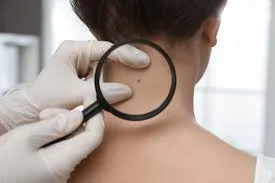Skin cancer is one of the most common cancers in the United States, and understanding the way cancer occurs can make things more straightforward for treatment. Dermatologists play a key role in prevention, diagnosis, and treatment, offering expertise and guidance every step of the way. Here’s more insight into what you need to know about skin cancer and its treatments, making it easier to understand how a dermatologist can support you through the process:
What to Know About Skin Cancer
Skin cancer occurs when skin cells grow abnormally, usually due to damage caused by ultraviolet (UV) rays from the sun or tanning beds. Skin cancer is not limited to sun exposure, and it can affect individuals of any ethnicity, skin tone, or lifestyle. Genetics and environmental factors can also play a role in its development. Skin cancer can appear as new skin growths or changes to existing moles, freckles, or spots. Since early detection can improve outcomes, regular skin checks with a dermatologist are recommended.
Common Types
There are three main types of skin cancer, each differing in severity and treatment approaches. Understanding these types makes you more aware of what to look for during self-checks or regular dermatology appointments.
- Basal Cell Carcinoma (BCC): This is the most frequently diagnosed type of skin cancer. It usually appears as a pearly or flesh-colored bump on sun-exposed areas like the head, face, neck, or hands. While BCC rarely spreads to other body parts, it can cause damage when untreated.
- Squamous Cell Carcinoma (SCC): This type often develops as a scaly, red patch or a wart-like growth. Lesions may crust, bleed, or create discomfort. SCC may occasionally disseminate to surrounding regions, highlighting the value of early intervention.
- Melanoma: Though less common than BCC and SCC, melanoma is commonly more serious because it is more likely to spread. It often appears as a mole that changes in size, shape, or color.
What to Know About Treatment
Dermatologists are trained to identify suspicious skin changes during routine exams. If something unusual is detected, a biopsy is typically performed. This involves removing a small sample of the affected area to be analyzed in a lab. A diagnosis will determine the type of skin cancer, enabling personalized treatment.
Navigating treatment requires planning, but dermatologists guide you throughout the process to help with your specific needs. From initial diagnosis to creating a treatment plan, they clarify available options and tailor their recommendations to your specific condition. Dermatologists also educate patients on follow-up care, emphasizing the value of regular check-ups and protection against future skin damage.
Treatment Options
Treatment is determined based on the type and stage of skin cancer. Here are the most common approaches:
- Photodynamic therapy (PDT): Is a minimally invasive medical treatment used to target and eliminate abnormal or cancerous cells. PDT is commonly used to treat certain types of skin cancers, precancerous lesions, and some non-cancerous skin conditions.
- Surgical Procedures: Dermatologists may recommend excision (removal of the cancerous tissue) or Mohs surgery, where skin layers are removed one at a time and examined under a microscope until no cancer cells remain. Mohs surgery is particularly effective for certain cases, especially where precision is invaluable to preserve healthy tissue.
- Cryotherapy: This treatment involves freezing the cancerous cells with liquid nitrogen, often used for small or early-stage skin cancers.
- Curettage and Electrodesiccation: This treatment begins with the dermatologist using a curette, a small, sharp, spoon-shaped instrument, to scrape away the abnormal or cancerous tissue. This treatment is especially suited for small, superficial skin cancers, offering a high cure rate and minimal scarring when performed appropriately.
See a Dermatologist Today
Whether it’s an annual skin check, early detection, or treatment management, dermatologists provide the expertise you can rely on. Dermatologists bring a wealth of knowledge and experience to give you the right care tailored to your needs. If you or a loved one is managing skin cancer, consult with a dermatologist today.



